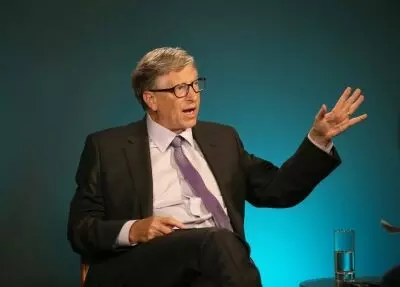
AI can make world a more equitable place: Bill Gates
text_fieldsNew Delhi: Bill Gates, a billionaire, has stated that artificial intelligence (AI) has the potential to reduce or perhaps eliminate the gap between the rich and poor worlds' access to innovations, provided we make smart investments now.
In a blog post titled ‘The road ahead reaches a turning point in 2024,’ the Microsoft Co-founder said that we can learn a lot from global health about how to make AI more equitable.
“The main lesson is that the product must be tailored to the people who will use it,” he wrote.
One of the biggest impacts so far is in creating new medicines. Drug discovery requires combing through massive amounts of data, and “AI tools can speed up that process significantly”.
“Some companies are already working on cancer drugs developed this way. But a key priority of the Gates Foundation in AI is ensuring these tools also address health issues that disproportionately affect the world's poorest, like AIDS, TB, and malaria,” he stressed.
Can AI combat antibiotic resistance?
Nana Kofi Quakyi from the Aurum Institute in Ghana is working on an AI-powered tool that helps health workers prescribe antibiotics without contributing to antimicrobial resistance (AMR).
“The tool will comb through all the available information—including local clinical guidelines and health surveillance data about which pathogens are currently at risk of developing resistance in the area—and make suggestions for the best drug, dosage, and duration,” Gates informed.
On the question of, whether can AI help treat high-risk pregnancies, Gates met some of the researchers at the non-profit Armaan this year, who hopes to use artificial intelligence to improve the odds for new mothers in India.
“Their large language model will one day act as a copilot for health workers treating high-risk pregnancies. It can be used in both English and Telugu, and the coolest part is that it automatically adjusts to the experience level of the person using it—whether you’re a brand-new nurse or a midwife with decades of experience,” the billionaire philanthropist said.
On a question, can AI help people assess their risk for HIV, he said that for many people, talking to a doctor or nurse about their sexual history can be uncomfortable.
“A new South African chatbot aims to make HIV risk assessment a lot easier. It acts like an unbiased and nonjudgmental counsellor who can provide around-the-clock advice,” said Gates.
“If I had to make a prediction, in high-income countries like the United States, I would guess that we are 18–24 months away from significant levels of AI use by the general population,” Gates added.
“In African countries, I expect to see a comparable level of use in three years or so. That’s still a gap, but it’s much shorter than the lag times we’ve seen with other innovations”.
With inputs from IANS























